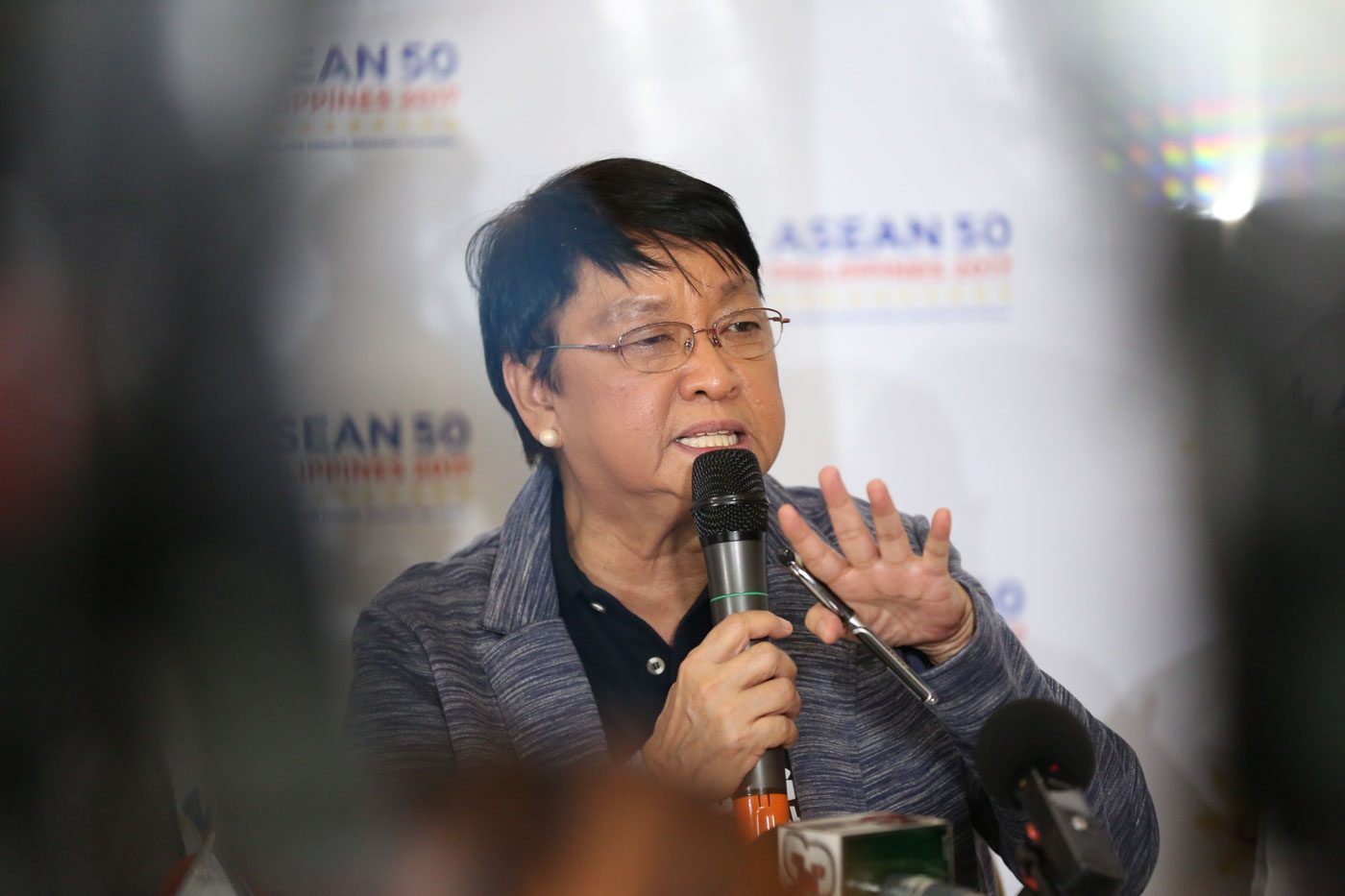SUMMARY
This is AI generated summarization, which may have errors. For context, always refer to the full article.

MANILA, Philippines – Anticipating the effects of the proposed tax reform package of the Duterte administration, P1.184 billion of the Department of Social Welfare and Development’s (DSWD) proposed 2018 budget has been allocated to assist the poorest families.
Social welfare secretary Judy Taguiwalo said during the agency’s budget hearing on Wednesday, August 9, that this grant was not part of their proposal. The Department of Finance added this provision to cushion the effects of the Tax Reform for Acceleration and Inclusion Act (TRAIN).
While the measure passed the House of Representatives, its future remains bleak in the Senate as critics point to the inflationary effect of the proposed excise tax on fuel that will hit the poor. (READ: Senate to prioritize tax reform, charter change)
“We have expressed our reservation [on the tax reform bill]… [but] once the bill is passed, we are willing to implement it within the limits of our capacities,” Taguiwalo said.
She said that the amount will be given to the 4.4 million beneficiaries of the Pantawid Pamilyang Pilipino Program (4Ps) and the 5.6 million poor families in their Listahanan database.
But Taguiwalo expressed that they can only accommodate the distribution of the cash grants for the 4Ps beneficiaries due to administrative constraints such as the lack of manpower. (READ: Will tax reform really hurt the poor?)
The families included in the Listahanan will be managed by another agency that the DOF has yet to identify, said Taguiwalo.
Contractual employees
The social welfare secretary highlighted the need to boost funding for its workers in her presentation before the House members.
Around 51% or 14,189 workers of the DSWD are contract of service workers while 5% or 1,351 are job orders. (READ: Contractual frontliners vulnerable to effects of gov’t rightsizing)
Only 10% or 2,842 are regular workers since the remaining 34% or 9,582 workers are contractual. Contractual workers enjoy the same benefits as plantilla government workers but do not have security of tenure.
“The department welcomes any [resource] given to us by Congress to help the poor, to help those in the crisis as long as you provide us not only the infrastructure but also for the personnel,” said Taguiwalo.
DSWD’s proposed 2018 budget is at P137.86 billion, P9 billion greater than its approved 2017 budget of P128.07 billion.
Taguiwalo said that the department has a total of 25 programs set for next year. During the hearing, she named the following as their top 10 priorities:
- 4Ps – P89.4 billion
- Social Pension for Indigent Senior Citizens – P19 billion
- Sustainable Livelihood Program (SLP) – P 7 billion
- Kalahi-CIDSS National Community Driven Development Program – P5.37 billion
- Protective Services for Individuals and Families in Difficult Circumstances – P3.45 billion
- Supplementary Feeding Program – P3.42 billion
- Disaster Response Rehabilitation Program – P2.14 billion
- Improving DSWD centers – P1.55 billion
- Tax Reform Cash Transfer – P1.184 billion
- Technical assistance and other support services – P891.5 million
Among these programs, SLP, Kalahi-CIDSS and the supplementary feeding program had lower budget allocation compared to last year due to low budget utilization. – Rappler.com
Add a comment
How does this make you feel?
There are no comments yet. Add your comment to start the conversation.